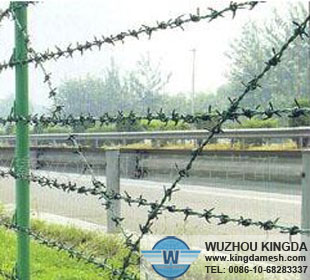Separatists strike to honor Indian Kashmir slain
SRINAGAR, India — An annual strike called by separatists in Indian-controlled Kashmir shuttered shops and businesses Monday to mark a top Muslim cleric's assassination 22 years ago, but police blocked a planned protest rally in the disputed region.
The cleric, Mirwaiz Mohammed Farooq, had argued for Kashmir's right to vote on whether it should be independent or governed either by India or Pakistan, nuclear-armed nations that have fought two wars since 1947 over rival claims to the Himalayan territory now split between them by a militarized line of control.
Since Farooq was fatally shot in 1990, separatists have blamed Indian agencies for the killing and held a protest march each year. They planned for Monday's rally also to honor another separatist leader gunned down after the same march in 2002. Authorities, meanwhile, have blamed separatist militants for both killings, and investigations into the attacks have never been made public.
Police blocked Monday's rally over security concerns, laying razor wire across streets in the main city of Srinagar where separatists had planned to march. Instead, armed police and paramilitary patrolled and restricted people's movement
Public transportation was suspended, though some private cars were on the roads.
Officials imposed house arrest on a handful of separatist leaders including Farooq's son, chief cleric Mirwaiz Umar Farooq, who heads the separatist alliance All Parties Hurriyat Conference.
The cleric later Monday dismissed a statement from police saying the restrictions were necessary to keep the peace after he declined to meet officials earlier to discuss the proposed march.
"By using military and police to enforce normality cannot be called peace," Umar Farooq told reporters at his home. "We'll not be cowed down by these militaristic measures."
The extra security measures have become common in Kashmir since 1989, when a violent separatist insurgency and ensuing crackdown by Indian forces left an estimated 68,000 people dead in the region. While the armed rebellion was largely suppressed, the region remains heavily militarized amid frequent street protests, with checkpoints along main roads, hundreds of thousands of deployed troops and harsh emergency laws creating more friction with the restive population.
Police said a suspected rebel of the region's largest militant group, Hezb-ul-Mujahedeen, was killed Monday in a gunbattle with Indian troops in the town of Kishtwar, about 170 kilometers (105 miles) southeast of Srinagar. There was no way of independently verifying the police report, and the rebel group could not immediately be reached for comment and did not issue a statement.







